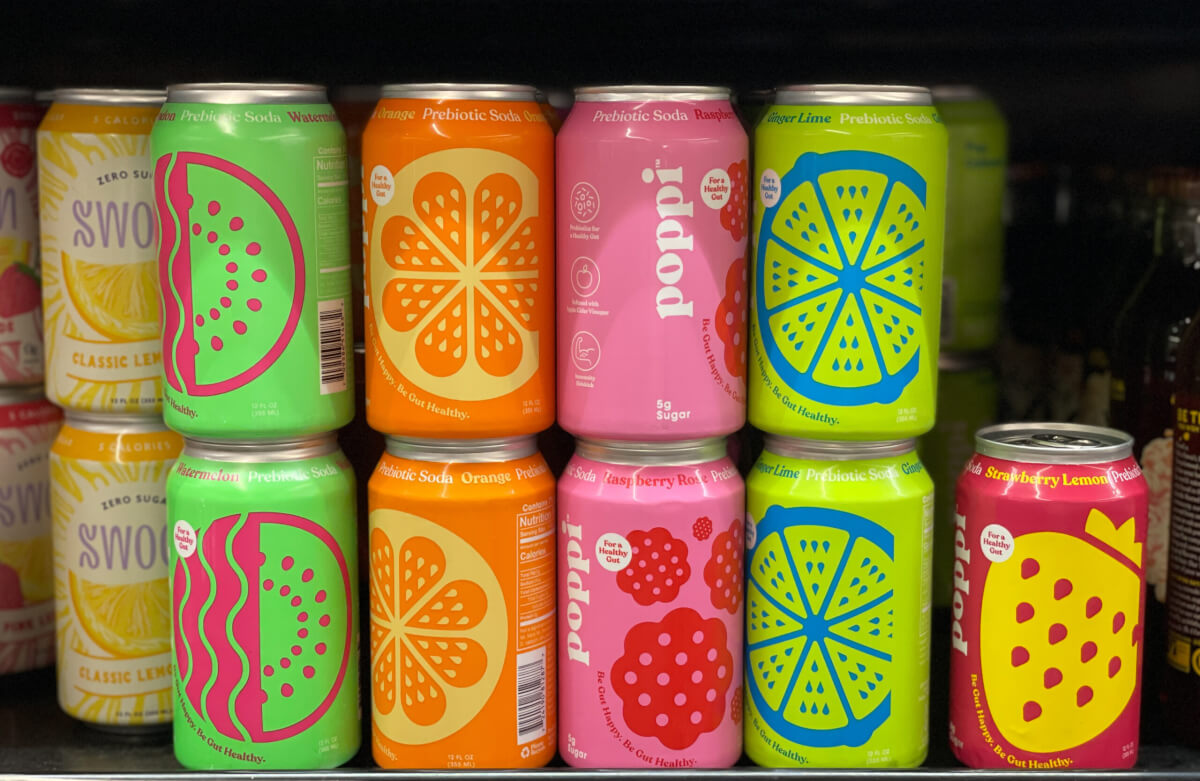Prebiotic sodas have surged in popularity recently, branding themselves as the “new soda.” Health-conscious consumers have flocked to these drinks because of advertisements promoting better gut health, blood sugar, and overall wellness. So, is prebiotic soda actually better than normal soda? As a registered dietitian, here’s what I can tell you about this trendy beverage.
You’ve probably heard of probiotics, but not prebiotics. To understand what the latter is, it’s best to still define the former first.
Probiotics are live bacteria and yeasts that can improve your gut bacteria when consumed. Kimchi and kombucha are two examples of probiotic-rich foods.
Prebiotics are plant fibers that feed your gut bacteria, helping probiotics to flourish. In other words, they both work together! Brands like Poppi and Olipip have come out with prebiotic sodas that contain anywhere from 2 to 9 grams of fiber per can, which is where the “gut healthy” claim they often boast about stems from. There are tons of flavors to choose from, like orange, ginger ale, root beer, and even cherry cola.

Close to 95 percent of Americans don’t meet the 25 grams of recommended fiber per day. While whole food-based fiber found in fruits, vegetables, and whole grains are preferable sources of fiber, added fiber in these drinks can help you increase your overall numbers.
These brands often use different fiber sources such as agave inulin, cassava root, chicory root, and Jerusalem artichoke. These are forms of soluble fiber that form a gel in your digestion and can help promote regular bowel movements and healthy blood sugar levels. Additionally, there’s significantly less added sugar in these alternatives, ranging between 2 and 5 grams per can. Regular soda generally contains zero grams of fiber, while packing over 40 grams of sugar per can.
Despite this, it’s important to remember that there is no one product that gives the magic fix or replaces a varied diet. Many are rushing to grab these new sodas because they provide fiber that they struggle to get in their regular diets, which can dissuade people from actually changing their diet for the better. If your overall diet is generally full of ultra-processed foods, adding a prebiotic soda likely won’t be the saving grace.
Are there any cons to drinking prebiotic soda?
If you have digestive issues and/or conditions like irritable bowel syndrome, Crohn’s disease, or gastroparesis, you may experience discomfort while consuming these drinks. Under these circumstances, you may want to limit your intake of these or avoid them altogether. If you do decide to give prebiotic soda a try, just monitor how you feel.
Overall, prebiotic sodas can be a fun and fibrous addition to your diet if you’re looking for a carbonation fix without excessive amounts of added sugars. They aren’t for everyone, but they can help you increase your overall fiber intake if you’re looking for a different way to do it.
They may cause digestive distress if you struggle with digestive issues or have a gut condition. These sodas are not a replacement for an overall varied, nutritious diet, and shouldn’t be viewed as such.
